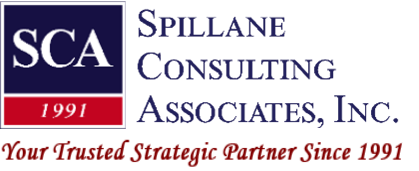Appraisal Threshold Increased to $400,000
By: Greggory B. Oberg, Esq.
The OCC, FRB, and FDIC have posted a Final Rule to the Federal Register; increasing the "transaction value" appraisal threshold. Effective immediately (October 9, 2019), appraisals are no longer required for residential real estate transactions where the transaction value is less than $400,000. The previous figure was $250,000, which had not been increased since the 1990’s.
Various other modifications previously highlighted in rulemaking were published under this October 8, 2019 Final Rule. This article will focus only on the increase in transaction threshold. Head to the Federal Register to read more.
Before you run off and amend lending policy, let’s take a deeper look at exactly what the rule requires, and where it falls short of making meaningful changes to the market at large.
Transactions Impacted
The modified exemption applies when “[t]he transaction is a residential real estate transaction that has a transaction value of $400,000 or less[.]” Another newly added provision in the Final Rule clarifies the meaning of “residential real estate” to mean “real estate-related financial transactions secured by a single 1-to-4 family residential property.” (Final Rule, at II.A).
While the rule is effective immediately, it is not clear how to apply the rule to loans in process. What is clear is that any loan for which an application is taken on or after October 9, 2019 will be covered under the increased threshold. As a matter of consumer communication, it may be prudent to continue with typical appraisal processes on those in-progress loans already disclosed with appraisal fees.
Setting the Threshold
Looking specifically at the dollar figure, the Agencies provide some interesting (although purely academic) conversation in how they settled on $400,000. The Agencies describe this number as “a conservative approach,” noting that homes selling at the threshold amount of $250k in 1994 would likely sell for closer to $644k as of March 2019.
Possibly due to this 25-year lag in updating the threshold, commentators requested some self-implementing measures to regularly raise the thresholds in the future. Some ideas included pegging the threshold to a geographic-based GSE conforming loan limit; or measures of inflation such as the CPI. These proposals were all shot down, with the Agencies seeming to prefer to retain authority to review the threshold as deemed appropriate in the future.
Below Threshold … Nothing to Appraise, Right?
Not so fast. Two large caveats to the threshold increase. First, appraisal requirements under federal law (e.g. 12 C.F.R. § 323.3(b)) an evaluation is still required even where a transaction is exempted from appraisal requirements under any of the 13 enumerated exceptions. Nothing has changed there.
Second, just because the law doesn’t require an appraisal, doesn’t mean your investor won’t. For example, under current Fannie Mae Selling Guide practices, an Appraisal Waiver cannot be obtained on properties with certain characteristics, including 2-to-4 unit, transactions using gifts of equity, co-op units, and casefiles receiving a DU “Ineligible” recommendation. (see Fannie Selling Guide, pages 613-4)
This is just one of the many private and GSE investors out there. The point to be made here is that just because the threshold in the reg increased, doesn’t necessarily mean that every one of your investors will be OK with an evaluation—as opposed to an appraisal—on a $350k transaction. Contact your investors individually before making sweeping changes.
###
Spillane Consulting Associates has served the residential mortgage lending business since 1991. We specialize in mortgage banking consulting services and provide quality control reviews, risk management, process consulting and employee training to credit unions, community banks and non-depository institutions. We are a thought leader on the strategic growth of residential mortgage lending.
SCA Compliance Hotline: Need a question answered quick?
Email: Compliance-Question@scapartnering.com
Call: (781) 356-2772
Thanks so much for reading our weekly newsletters. We're not always going to be perfect, but because we always do our best and try not to overpromise, we hope that we're always going to be trustworthy. Your calls and e-mails are very helpful - please keep contributing.
**These are our opinions. We're not authorized, or willing, to express those of others.**

